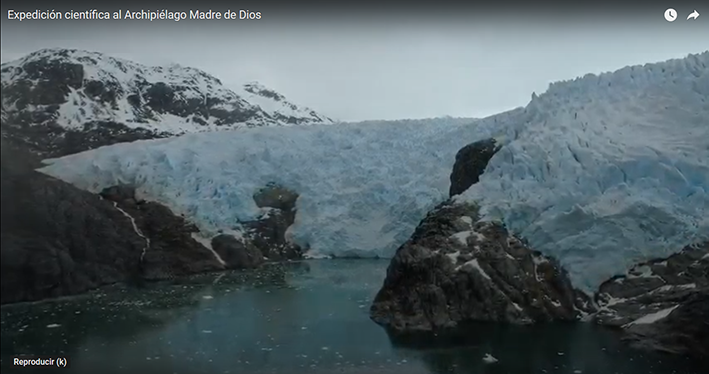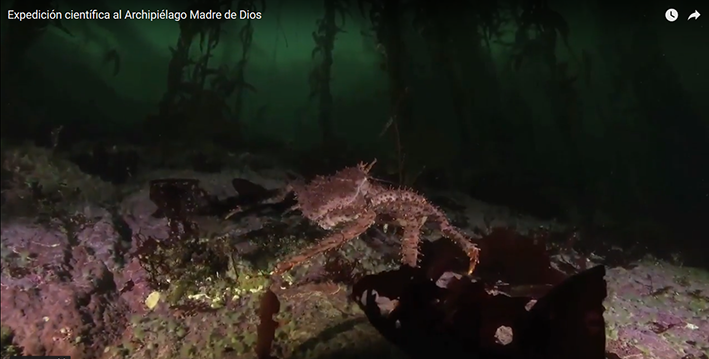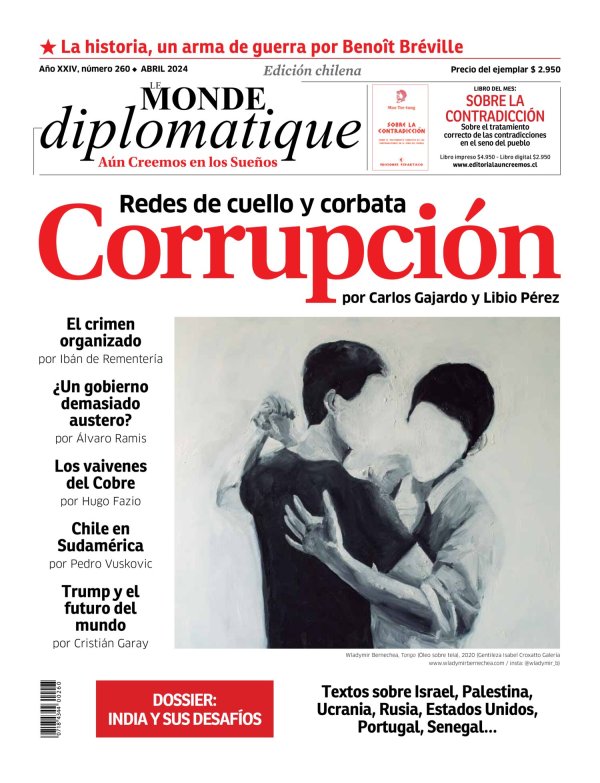PUBLIC DECLARATION:

1.- We join the public concern of people of Chiloe, Aysen and Magallanes provinces, which extends throughout the entire country, for the expansion of Salmon farming in Patagonia and particularly in its southern end (e.g. Beagle Channel). As we have stated in the past, and we reiterate today, while the King of Norway visits Chile, we do not share the enthusiasm of the Chilean government to intensify salmon farming to the expenses of transforming Patagonia into an “environmental sacrifice zone” for the single purpose of short term economic enrichment, and against long term consensual development of the region.
2.- With due respect to the people of Norway and its institutions, we are confident to state, that salmon farming by Norwegian companies left a track of environmental atrocities in North Patagonia (e.g. Chiloe, Guaitecas etc) in term of pollution by excessive antibiotics, pesticides, eutrophication (likely leading to red tides intensification, recurrency, and shell fish mortality), frequent escapes and mass mortality of fish, and its uncontrolled dumping in the ocean, etc. etc. . All of this have brought unaccountable socio-cultural impacts to this Bio-Cultural Ecosystem where we live.
3.- The current expansion of salmon farming into Magallanes, and before into Aysen Provinces, obeyed to the purpose of having access to the remaining pristine waters of Patagonia. Chiloe inland seas were no longer of interest for salmon farming and were abandoned since eutrophication and oxygen depleted waters became too strong. Various and present Chilean governments have allowed this caos to happen for decades. Nowadays the present government throughout its institutional officials such as ministers of the Environment, Education, Commerce (Undersecretary of Fisheries and Acquaculture), the recently established ministry of Science and Technology, the Navy (Coast Guard and Hydrographic Institution) have plain and simple ignored public concern, and environmental and social organizations distress. They have not shown precautious judgements or decisions to protect the country from audacious foreign investors in salmon farming.
4.- We are concerned of unconditional support of the Chilean government and indolence of the Chilean parlament (deputies and senators) when approving millions in subsidies to the expansion of the salmon and mussel farming in Patagonian waters and its territories. In the process, fishermen and people from Chiloe, Aysen and Magallanes have been expropriated, displaced and lost their access to the fishing grounds. Among them, the Williche, Yagan, Kawesqar and other etnia who are the legitimate inheritants of the canoeing traditions of the southern fjords are thrown to marginality, since the Chilean governments have been detractors or stop low to reserve the inland water of Patagonia for their traditional use. Equally inefficient have been government and enterprise policies to subsidize and support scientific and technological research to foster the small scale coastal economy, so unique of these etnia.
5.- We are as well worried for the very scarce scientific knowledge of the structure and functioning of this complex marine ecosystem. Its carrying capacity to sustain the organic overload of organic waste (feces, uneaten food supply) antibiotics, antifouling paint, pesticides, etc generated by salmon (and mussel) farmings has not been estimated. Governmental institutions and the farming enterprises have avoided to inform of any baseline study or scientific knowledge of sea water quality likely to change with farming, such as concentrations and distributions of oxygen, ammonia, phosphorus, heavy metals, pesticides etc in the prospected farming sites and Patagonian region. The bacterial capacity to decompose, degrade and remineralize the alochtonous compounds which will be damped in those pristine waters. The food web and energy flow within and between natural benthic, planktonic and nektonic communities are scarcely known. They must be studied to oversight, monitor and forecast the impacts of farming and eventual escapes of salmon. These waters harbor a unique marine community which harbor krill, whales, marine birds . etc. etc., which are closely linked and in balance with the benthic fauna (mussels, kingcrab, sea urchins, etc). Both pelagic and benthic communities are undoubtedly affected by acquaculture.
6.- We must warn the farming enterprises and the governmental institutions that the ecosystem of Patagonian and Fueguian channels and fjords is complex and highly variable in time and space to introduce without a baseline study an exotic (non native species like beaver and mink) and voracious predator with its own deseases and parasites. Procedures to cope with massive salmon escapes from pens have proven to be ineffective in Northern Patagonia (Chiloe, Guaitecas). The risk of intense predation of larvae and juveniles and further decimation of king crab and other resources population by salmon escapees could be fatal.

7.- Furthermore, It becomes extremely risky to introduce and expand salmon and mussel farming in the Beagle Channel, since it is a particularly shallow inlet (30-40 m) all along.Inputs and impacts of surface farming shall directly and immediately affect the bottom communities and sediments. The entire Magellan and Fueguian region has a very uneven topography with abysm of hundreds of meters next to very shallow embayments or channels, with the consequent restrictions for the flow of water masses. Therefore input or dumping of alochtonous compounds (feces, uneaten food, antibiotics, pesticides, heavy metals, etc. etc.) generated by farming, may be progressively accumulated in one microbasin and/or dispersed or sequestered in another nearby. These complexity are of course overlooked from an upper view of the ocean and are not easy to forecast. Furthermore, low water temperatures in the Beagle channel should decrease the bacterial degradation rates of leftovers of aquaculture.
8.- Because of the complexity and variability of these pristine ecosystem, unavoidable human and economic resources should be invested in scientific research before engaging the country in a blind economic race hand in hand with the greedy foreign investors, who are expecting rapid and easy returns and fully ignoring the environmental disaster that next generation of locals would suffer.
9.- We demand the Chilean government, and the investors, the royalty, the people and its environmental organization of Norway to proceed with empathy to the fate of our country and its human and natural resources. We urge them to promote effective dialogue with the Chilean citizens and particularly with the Yagan and Kawesqar people and with thousands of families, who left Patagonia and wish to return and live under the same protection and rights that Norwegian people enjoy in their own country.
Asociación para la Defensa del Ambiente y la Cultura de Chiloé
(ADAC CHILOE) chiloe.adac@gmail.com
Dr. Tarsicio Antezana J. President, 31 de Marzo 2019






